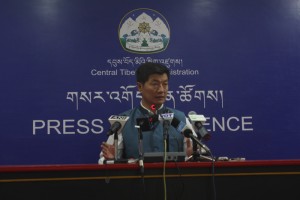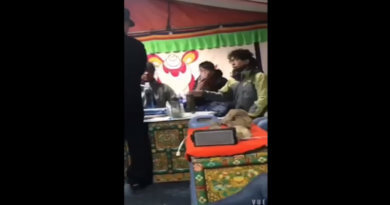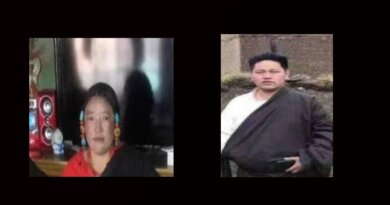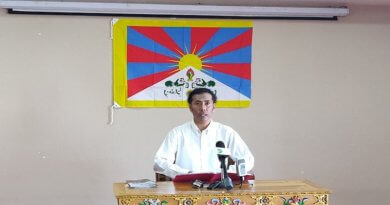CTA forms new committees to make amends for past mistakes
By Lobsang Tenchoe
DHARAMSALA, Apr 25: Sikyong Lobsang Sangay, the political head of the Tibetan people held a press conference today at the headquarters of the Central Tibetan Administration (CTA), briefing Tibetan and Indian press about the new committees that the Central Tibetan Administration has decided to form to address various affairs related to the Tibetan administration.
Addressing the press conference, Sikyong Sangay spoke on the formation of two committees and a draft.
“Since His Holiness’ passionate criticism at the recent centenary celebration of Men-Tsee-Khang about CTA’s failure at providing health care, prevention in particular, we just don’t want to stop with our apologies; we want to make amends to our mistakes and errors. As such, a series of discussions were held with former and Current CTA leaders including members of the Kashag, members of parliament and Speakers. Matters relating to the election were also discussed at length with the Election Commissioner and his deputies which resulted in the formation of two committees and a draft proposal to be tabled in the Parliament,” Sikyong Sangay said.

He further added that “at the behest of the current Kashag, Mr Ngawang Phalkey, former Chief Justice of CTA was appointed as the head of the health committee entrusted with the task of overseeing prevention and grass root level development of health. Mr Tsering Dhondup, former Secretary was appointed as his deputy. Representatives from Tibetan settlements, schools and monasteries are to meet in Dharamsala as the Department of Health will be organizing a meeting from 16-18 May to discuss and arrange programmes and activities relating to prevention and health care. A committee to oversee and attend to the development of the Tibetan people who fall below the poverty line has been also formed. The committee will be headed by Mr Tsering Phuntsok, former Religion and Culture kalon with Mr Tashi Phuntsok, former Home Secretary as his deputy.”
The committees are to start working from the mid of May with an instruction to submit a report in no further than three months time by the Kashag so that the new Kashag can act accordingly, and collect inputs and consensus from former and present office holders as well.
During discussions with the Election Commissioner and his deputies, the Tibetan electoral process which comprises of two stages – preliminary and final – was deemed very lengthy; the common consensus reached was that the two rounds, spanning over 9 to 10 months, have to be shortened.
“It is agreed upon that the matter be discussed and decided during the parliamentary proceedings in order to avoid baseless accusation and allegations from social media channels which only to create regionalism and partitions hindering our common cause and unity,” Sikyong Sangay concluded.





